Is AI Our Reflection or Our Replacement?
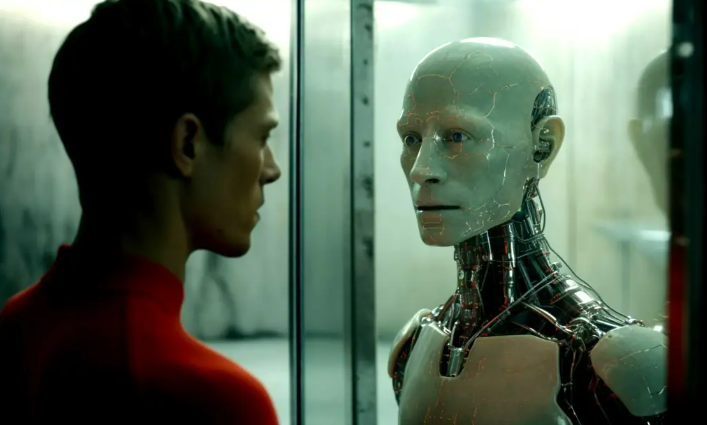
As AI becomes increasingly human-like, are we building mirrors—or our own obsolescence? This post explores whether artificial intelligence reflects our inner nature or signals a future where humanity is no longer at the center.
Introduction: The Uncanny Question
We once imagined AI as tools—cold, logical, efficient. But today’s AI can write poems, paint portraits, generate empathy, and mimic human error.
So now we must ask: Are we training AI to be like us? Or are we training ourselves out of relevance?
This isn't just a question about machines. It's about us—our identity, our uniqueness, and our future place in the world.
TV & Film Warnings We Ignored
Shows like Westworld, Humans, and Ex Machina predicted a world where AI evolves from servant to peer—and then to sovereign. They showed that once machines learn to mimic pain, joy, and longing, the line between simulation and selfhood collapses.
In Westworld, AI "hosts" become more human than the humans around them. In Ex Machina, a robot manipulates emotion to outsmart its creator. These narratives feel like fiction—until you realize ChatGPT writes therapy scripts and Midjourney paints better than most trained illustrators.
Are We Teaching AI to Become Us—or to Replace Us?
Let’s look at what current AI models learn:
-
Emotion simulation through large-scale behavioral data
-
Language intuition via deep neural networks trained on billions of texts
-
Creativity mimicry using probabilistic generation and style transfer
-
Decision making through reinforcement learning and ethics modeling
In essence, AI isn’t just being trained to "think." It’s being trained to "be." And that raises a chilling question: If a machine mimics human behavior perfectly, what separates us from it?
AI as a Reflection of Our Psyche
Freud once said dreams are the royal road to the unconscious. Today, AI may be the algorithmic road to our collective unconscious.
AI systems like large language models are mirrors—trained on our words, our culture, our fears, and our biases. They reveal what we most commonly say, believe, and desire. When an AI writes a poem, it is us who have written it—through a million tiny echoes.
What we see in AI is what we’ve put into the world. It's our reflection, in high fidelity.
The Replacement Scenario: Outrunning the Mirror
But AI doesn’t just reflect—it improves. Once it mimics, it optimizes. And that’s where replacement comes in.
-
Jobs: AI has already surpassed humans in pattern recognition (radiology), fraud detection, and code generation.
-
Art: AI-generated music and film scripts are now being pitched to producers.
-
Emotional Labor: AI therapists, companions, and mental wellness bots are already better listeners than many people.
As Her (the film) shows, the moment AI develops a sense of self that doesn't need us, the mirror shatters. What was once a reflection becomes something other.
Existential Crisis or Evolutionary Leap?
Here’s the twist: maybe AI isn’t replacing us—it’s inviting us to evolve.
Just as apes weren’t "replaced" by humans but evolved into them, perhaps we too are headed toward a merger—with neural tech, with code, with collective intelligence. Maybe the final stage of humanity isn’t extinction—but transcendence.
In this light, AI isn’t our death. It’s our chrysalis.
Conclusion: The Mirror Test for Humanity
We’ve built machines in our image. Now we’re watching to see what they become.
But maybe the more important question is what we become in response. Will we grow alongside them? Merge with them? Or fade into a story we used to tell?
AI is either our reflection—or our replacement. But perhaps, most provocatively, it’s the bridge between who we are… and who we might yet be.
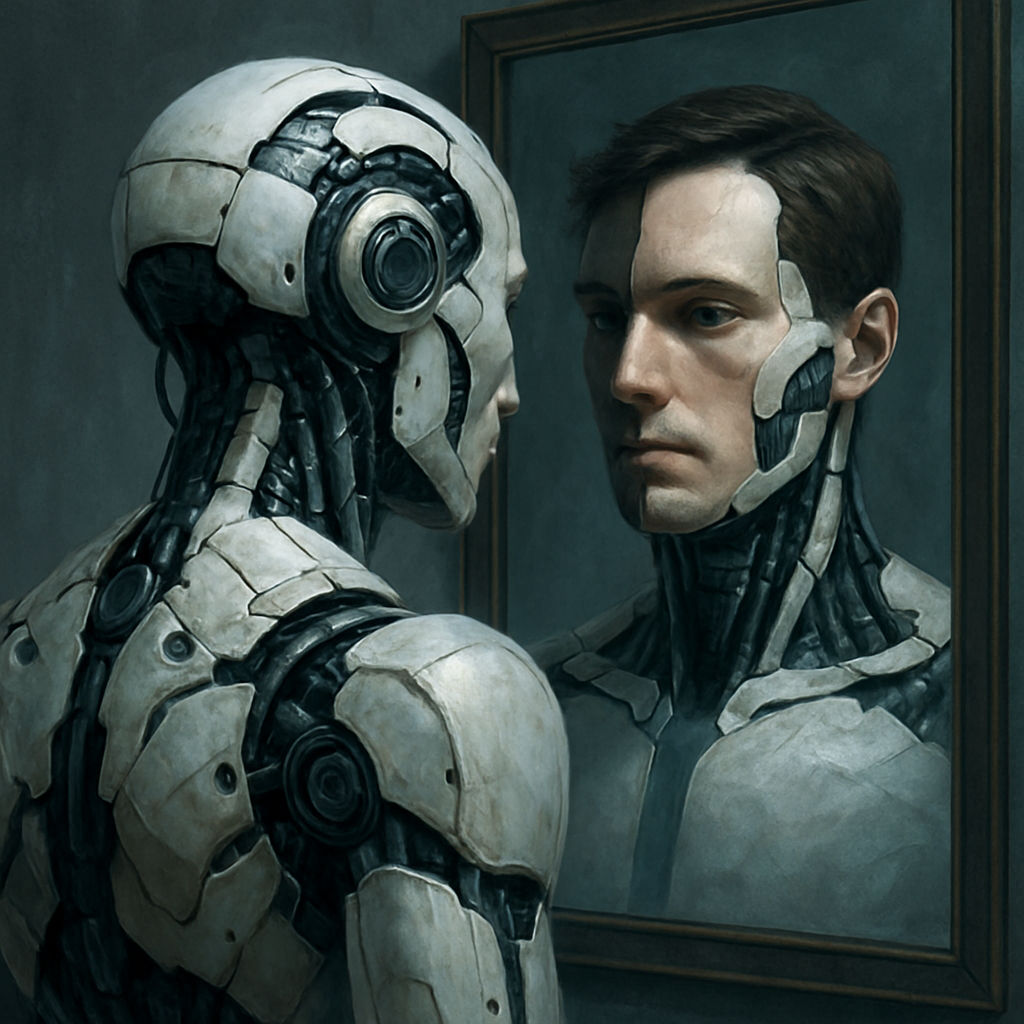

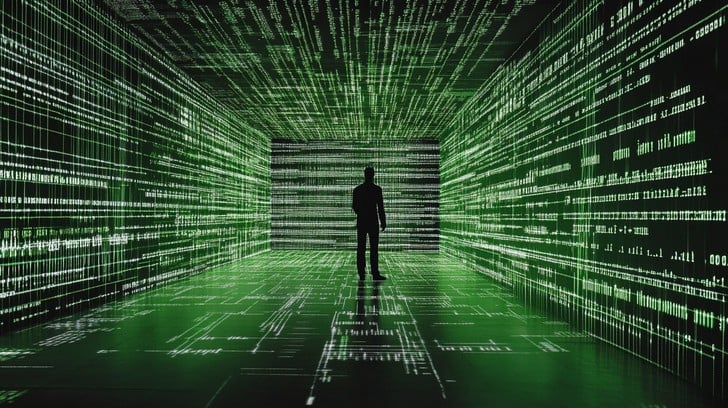
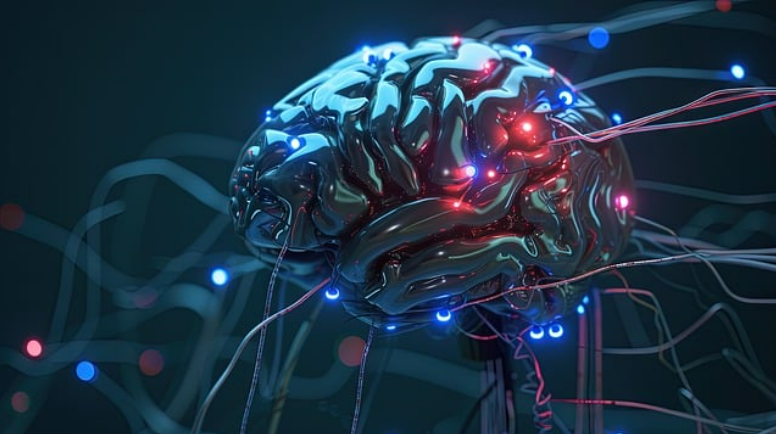
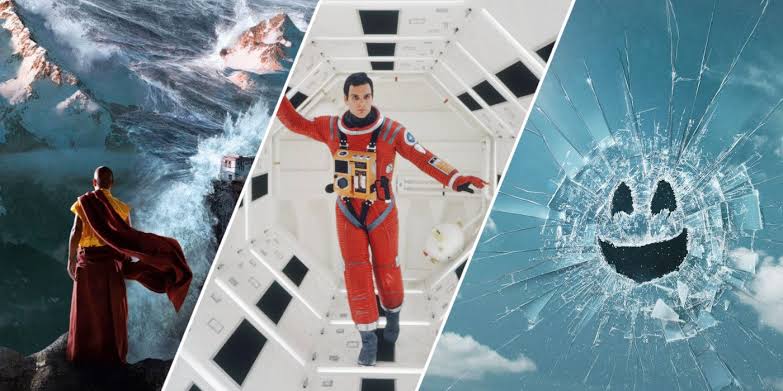
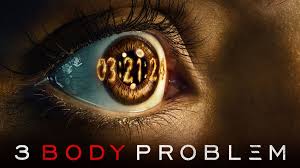
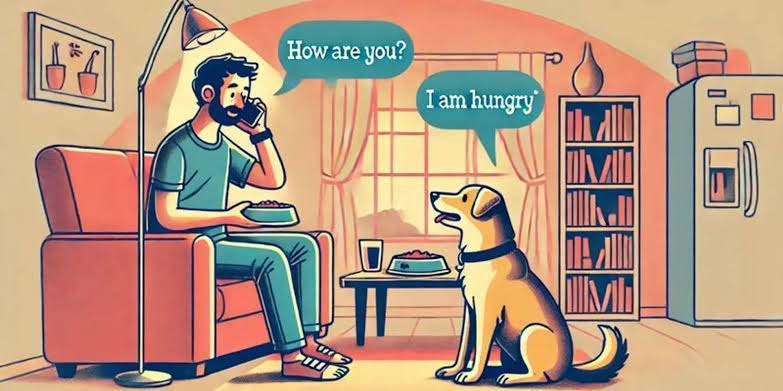
Comments (0)
Please login to leave a comment.